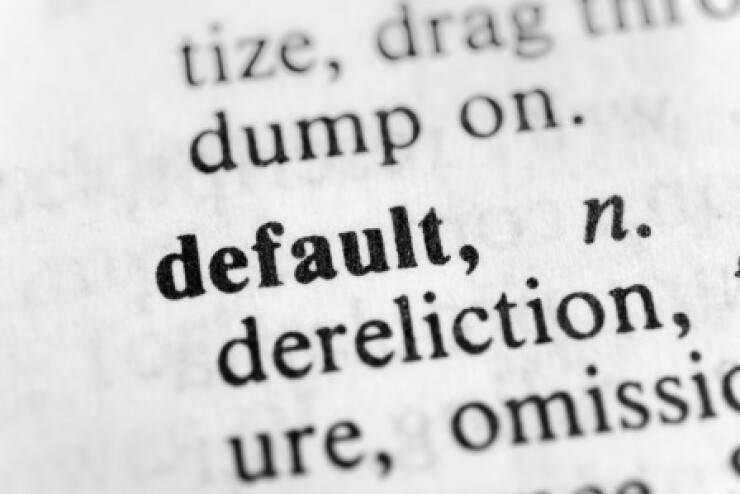Credit managers continue to see weakening conditions for defaults and credit spreads over the next quarter, according to a quarterly survey published today by the International Association of Credit Portfolio Managers.
But their concerns are concentrated mostly with the high-yield sector, providing some buffer against worries of a much more severe outlook that would also impact investment-grade corporates.
In the IACPM’s third-quarter credit-outlook survey, up to 75% of respondents expect to see rising levels of default in North America and Europe, and two-thirds expect higher default results in Asia. That caused the IACPM’s default index to worsen from the prior quarterly survey – which indicates expectations for worsening credit conditions for credit managers and borrowers.
“Survey respondents are increasingly seeing signs of a slowdown in the global economy,” said Som-lok Leung, the IACPM’s executive director. In addition, “a number of people are reporting not just that they are expecting weakness, but in the last several weeks and months, they’ve actually seen it.”

From the IACPM’s credit outlook survey, respondents showed growing expectations for defaults across corporate, retail, mortgage and commercial real estate sectors.
The credit default outlook index worsened to (-)56.2 from (-)45.4 last quarter in the diffuse array index published by the organization. Meanwhile, the companion credit-spread outlook index also went further negative at (-)25 from (-)19.1 in the second quarter.
(The index scales on both range from 100 to (-)100, with negative numbers indicating expectations for growing levels of defaults and in the case of the credit-spread outlook, wider spreads.)
For the spread outlook, more respondents forecast improved conditions expected for the investment-grade corporate class in North America than the prior quarter. The index improving to (-)11.4 from (-)21.9, while the high-yield index sank to (-)42.9 from (-)34.4.
While not making the call for recessionary conditions, the respondents are reacting to brewing problems in certain sectors – in particular the agriculture, energy, manufacturing and transportation industries that are being impacted by the ongoing trade war between the U.S. and China. “People are not yet using the word recession,” Leung said, “but they definitely see a slowdown, a tangible weakness.”
And that weakness seems concentrated in the speculative-grade space. “Definitely so,” Leung said. “That adds an interesting perspective to the default outlook."
“The investment-grade versus high-yield difference probably tells us the view of the type of deterioration” respondents forecast, he added. With the expectation of greater default levels in the high-yield space, “corporates will have a much better buffer. It will be more of a downward slope than a fall off a cliff.”
The uncertainty over Brexit at the time of the survey plus manufacturing weakness in Germany led the concerns for European credit managers. Managers see widening spreads across high-yield and IG sectors on the continent, as well as rising default rates. The 12-month outlook for defaults in Europe worsened to (-)66.7 on the IACPM’s index, from (-)42.4 in the previous quarter.





